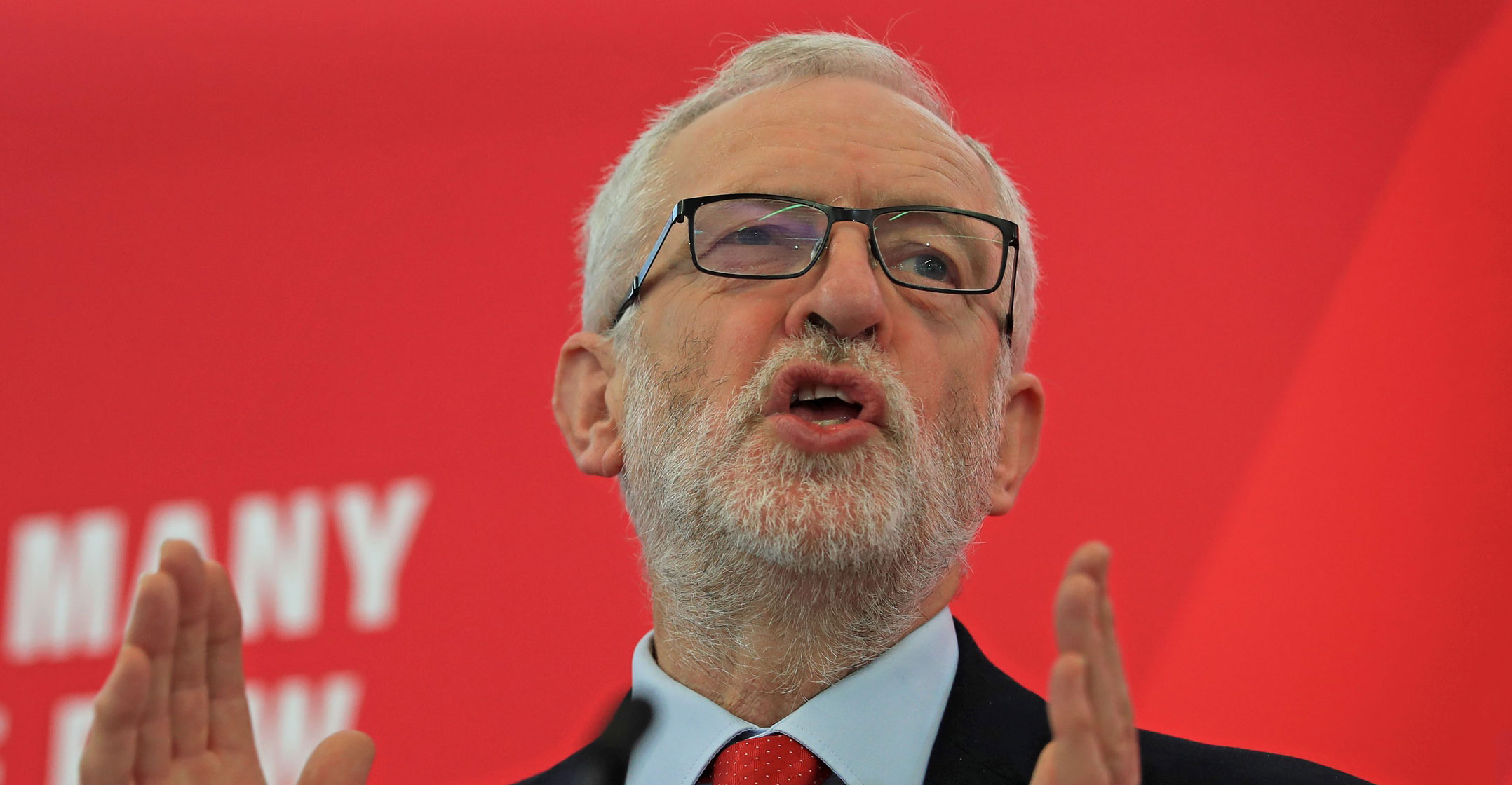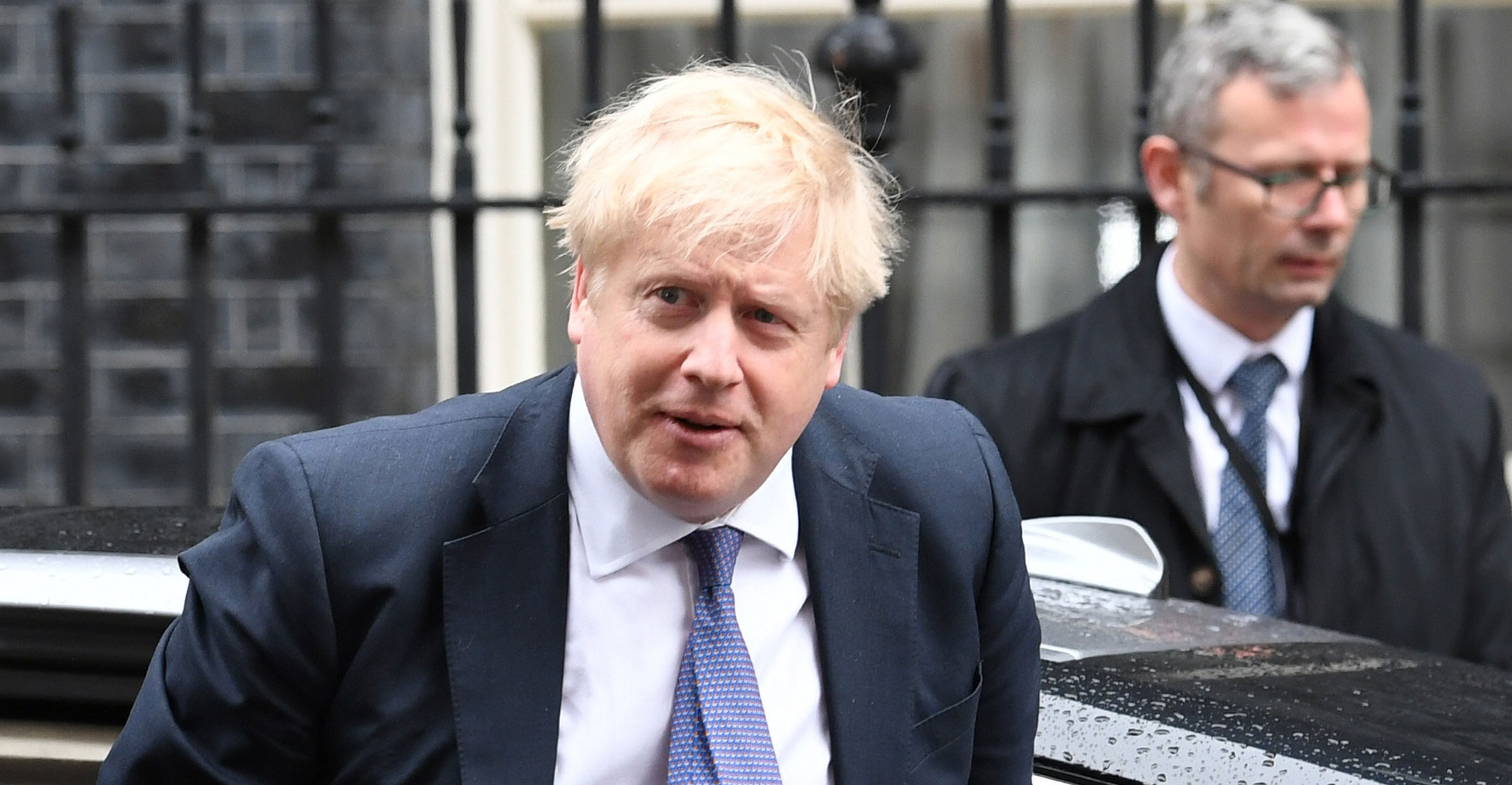
Jeremy Corbyn sent shockwaves through London’s financial district as he unveiled plans to nationalise the UK’s broadband network, providing free Internet access for every home in the country.
Labour costed the scheme at £20-billion but BT — which would be partly taken back into public ownership — warned the true figure would be closer to £100-billion.
The telecommunications giant saw its share price fall 4% on the news, although it later recovered, still wiping more than £200-million off the value of the company.
Boris Johnson said it was a “crazed communist scheme” as the Tories warned it would fall foul of European state aid rules if Labour succeeded in keeping Britain in the EU.
However, Corbyn insisted that by providing “gold standard” full-fibre broadband to the entire country, a Labour government would be putting Britain “at the cutting edge of social and economic change”.
“Fast and free broadband for all will fire up our economy, deliver a massive boost to productivity and bring half a million people back into the workforce,” he said in a campaign speech in Lancaster.
“It will help our environment and tackle the climate emergency by reducing the need to commute. And it will make our country fairer, more equal and more democratic.”
Public ownership
The announcement represented the most radical move so far by any of the parties in the general election race.
The move would bring parts of BT into public ownership, including Openreach, which runs the UK’s broadband network.
Labour said it would be paid for through the party’s Green Transformation fund and taxing corporations such as Amazon, Facebook and Google — bringing a monthly saving of £30.30 to the average person.
The party said there would be a one-off capital cost to roll out the full-fibre network of £15.3-billion, in addition to the government’s existing and not-yet-spent £5-billion commitment.

A YouGov snap poll of 3 653 adults found that 62% supported the policy of providing free broadband, while 22% were opposed.
When it came to the way in which Labour said they will pay for the plan, 32% said they were supportive of it, while 31% were opposed. Both groups are marginally outnumbered by the 37% who answered “don’t know”.
Shadow chancellor John McDonnell said the costing was based on the government’s own review of the UK’s digital infrastructure.
But BT CEO Philip Jansen said the party had dramatically underestimated the price of re-nationalisation, saying it would be closer to £100-billion.
He said shareholders were already nursing “massive losses” — with a heavy fall in the share price over the past two years — and that further losses would only damage confidence in the sector.
“The reason for that is they recognise we’re going to invest very, very heavily in a competitive market and there’s a lot of risk in that investment,” he told the BBC Radio 4 Today programme.
“And change like the current idea of nationalising part of BT, or the infrastructure bill or giving it away for free, takes away that competitive nature.”
Julian David, CEO of technology trade association techUK, said Labour’s plans would be “a disaster” for the sector.
Halt investment
“Re-nationalisation would immediately halt the investment being driven not just by BT but the growing number of new and innovative companies that compete with BT,” he said.
TalkTalk’s CEO Tristia Harrison said the sale of its full fibre broadband business, FibreNation, has been put on hold following the announcement.
Richard Hooper, chairman of the Broadband Stakeholder Group, said: “Telecoms businesses in the private sector, many of whom are sponsors of the Broadband Stakeholder Group, are investing at scale to make digital connectivity a reality for communities and businesses across the UK, and to unleash the opportunities that the fastest fibre broadband and 5G will provide for everybody.
“Labour’s national monopoly model would wipe out, at a single blow, the existing and future investment plans, based on vigorous competition, reverse economic growth through years of delay and uncertainty, and cost tens of billions of pounds to the UK’s digital economy.”

